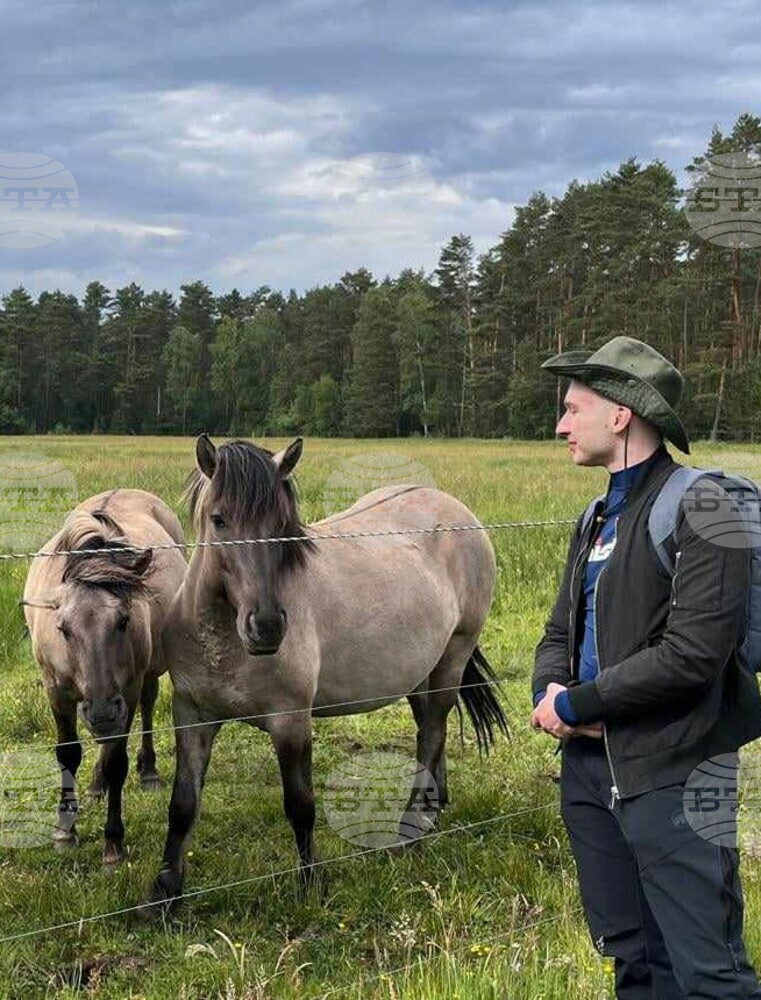site.btaEnvironment Protection Expert Calls for Creating Corridors in Bulgaria for Safe Movement of Wildlife


Environment protection expert Pavel Vassilev is an advocate of the establishment of what he calls "eco-corridors" to connect wilderness areas and allow the safe movement of wildlife. Vassilev was speaking to BTA in his capacity as environmentalist and author in the Climateka platform for environmental knowledge.
He explained that migration is a natural behavior of most animals but it cannot happen if these animals are isolated in nature parks.
Vassilev also spoke to BTA at length about the role of the so called "ecosystem engineers". These are living creatures that create, modify, maintain or destroy a habitat via their behavior and thus impact the other living organisms.
Following is the full interview
What is an ecosystem engineer and how do these species affect the environment?
An ecosystem engineer is an animal that changes the environment with its behaviour and this affects other living organisms. These can be small as well as large animals. This type of high-impact animal is beneficial when it is in its own habitat but is harmful when it becomes an invasive species.
Large ecosystem engineers are the large herbivorous mammals. They regulate vegetation by grazing, but they can also change the species composition and appearance of a given habitat. Without large mammals, a forest may be dominated by only a few species that will eliminate their competition. This often has a negative effect on biodiversity and its ability to positively influence climate. Large ecosystem engineers create a mosaic of different habitats such as grasslands, woodlands and wetlands.
Can you give examples of ecosystem engineers?
Worms are an example of small ecosystem engineers because they make multiple tunnels in the soil and change its properties such as quantity of humus, oxygen and moisture. If the worms were gone, the soil would be denser and more plant mass would remain on the surface of the ground.
In Europe, worms are indigenous and are very beneficial to nature, which has evolved with them over a long time. In North America, for example, there are no native worm species. Europeans are importing these ecosystem engineers and they are starting to have a negative effect on forests because the plants have not evolved with them.
Looking at Europe, we need to mention large herbivores. Many people do not know how diverse our nature is. When they think of large land animals, they imagine the savannas of Africa, the prairies of North America or the jungle of India. Europe also has such nature, but it is fragmented and its full potential is nowhere to be seen.
What are the ecosystem engineers in Europe?
Europe's keystone animals are many. Deer, red deer, elk, moose and reindeer, the wild horse Tarpan, the wild cow Turk, the European bison, the saiga antelope and the beaver are important for forests, grasslands and wetlands. The ibex, wild goat and mouflon are important for the mountains.
In Africa and Asia, important examples are the elephant, rhinoceros and buffalo.
In South America it is the guanaco and vicuña, tapirs, peccaries and several species of deer. For North America, the American bison, several species of deer, the pronghorn antelope and the mustang.
How can natural ecosystem engineers be supported in Bulgaria?
In Bulgaria, eco-corridors need to be created between different wilderness areas to allow animals to move safely between them. Migration is a natural behaviour of most animals, but it cannot take place if these animals are isolated in parks.
More protected areas are also needed in the lowlands. These areas have been massively converted to farmland, which is no suitable habitat.
It is also important to change people's thinking. They need to love nature and know that it includes animals. There is still an aversion to predators, which is a very outdated way of thinking. Horned animals are only seen as hunting trophy, but they are important for nature, and nature is important for us people.
In countries in Western Europe there is a conservation organization in every town. This is not the case in Bulgaria. This country is in need of civic activism.
Tell us about the practice of rewilding.
Rewilding is the active restoration of nature that has been damaged by humans. One of the philosophies is to leave nature without any human intervention. However, this is not enough as some things require intervention.
In Europe, large mammals have disappeared in much of their former habitats. There are many National Parks that are missing animals and plant species or habitats. Rewilding makes sure these species are re-introduced. The practice makes sure that habitats are recreated using machinery, for example shaping the natural appearance of rivers with excavators or other machinery.
Rewilding is the future of nature conservation, but unfortunately it is still little used.
How do conservation organizations in Bulgaria work?
There are important organizations in Bulgaria. The Rewilding Rhodopes Foundation should be mentioned because it actively releases large wild animals. Other key organizations are the Bulgarian Society for the Protection of Birds, the Balkans Wildlife Association, Green Balkans and the Biodiversity Foundation.
They carry out very important work and, thanks to them, there is still rich wildlife preserved on the territory of Bulgaria.
However, more work is needed. It is important that an environment-friendly way of thinking is taught in schools. From a young age, children should be taught to love nature and wild animals, that are an important part of it, to be aware of the danger to environment and be involved in its conservation.
/NF/
news.modal.header
news.modal.text